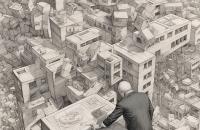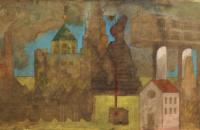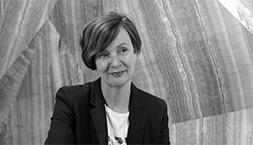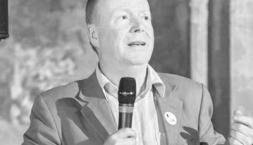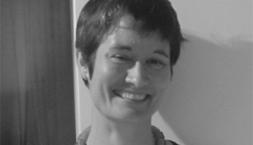Professor in Residence, Department of Architecture, GSD, Harvard University, Cambridge MA, USA
Issue's articles
In This Issue [1/2023]
VOLUME 8/2023 - Issue 1 , Pages: 5 - 6 published: 2023-06-27Blue Urban Commons: A Cross-Examination of Water Bodies an Urban Informality
VOLUME 8/2023 - Issue 1 , Pages: 7 - 21 published: 2023-07-12This study uses the “urban water commons” lens to examine the intricate interplay between urban informality and bodies of water. Case studies from Jakarta, Beirut, Medellín, and Dhaka are analyzed, each illuminating a unique array of challenges. Themes of environmental degradation, involuntary displacement, and infrastructural deficits are prevalent across these urban contexts. The paper stresses the urgent need for comprehensive urban planning strategies that safeguard equitable access to and shared stewardship of urban water resources. It underscores the necessity of government policies that prioritize community involvement, environmental sustainability, and the integration of informal settlements into the wider urban fabric.
Beyond Modernist Housing: Can the Mass Housing Model Accommodate Human Agency?
VOLUME 8/2023 - Issue 1 , Pages: 23 - 43 published: 2023-06-28The lack of attention paid to the disempowerment of the residents has been a shortcoming of the modern mass housing model. Even today, no policies promote and support the residents’ efforts to continue improving their quality of life through actions involving changing the physical environment. Following a brief history of the origins of mass housing in the West through the discourse in the modern movement, the paper expands on implementing these modern ideas in the post-War non-Western region and how they were received and appropriated there. The article presents the case study from the author’s work on Korangi Town in Karachi, Pakistan, to show that the residents’ changes reflect their active agency. However, it was an unintentional outcome of modernist design and planning. This paper is more than just a critique of the cultural apathy of modernism. It questions what happens to a modernist project after the expert leaves the arena. How do residents adapt to or cope with their physical environment? Moreover, is there a way to include human agency in mass housing?
The Urban Forum Dialogue Tool: Reflecting on a Designerly Approach to Transdisciplinary Research
VOLUME 8/2023 - Issue 1 , Pages: 45 - 67 published: 2023-06-15With a view to working toward urban sustainability goals, two Swedish research platforms, SLU Urban Futures at the University of Agricultural Sciences in Alnarp (SLU) and the Urban Arena at Lund University, launched Urban Forum, a transdisciplinary dialogue format, in 2019. Designed to foster exchange between practitioners and scholars in the spatial design fields the Forum convenes actors from practice and academia working on matters of shared concern to increase their interaction and defuse preconceptions against each other. The initiative recognizes that academic and non-academic design actors are equally needed to build transformative capacities and reflects two related convictions: that siloing practice and academia is unproductive and that synthetic encounters can serve to reimagine roles and retool mindsets currently hampering mutually beneficial knowledge exchange. This article analyzes a series of Urban Forum events from 2019-21 to extrapolate procedures for overcoming entrenched notions of the practice/academia dynamic; identify criteria for productive knowledge exchange; suggest ways to design transdisciplinary dialogues; and highlight the benefit of involving designerly knowledge and working methods into the transdisciplinary methodology toolbox.
Why the Energy Transition Needs Designers
VOLUME 8/2023 - Issue 1 , Pages: 69 - 84 published: 2023-06-14This study is based on the work of Vienna-based architectural firm Delugan Meissl Associated Architects. Together with a group of experts, the office has developed an exemplary approach for the energy transition in the field of architecture and landscape design on the basis of five concrete scenarios. The authors maintain that the energy transition is not only subject to technical solutions but of equal importance to designers, which they underpin by policy frameworks on climate change in the DACH region. Since all five design scenarios are located in Austria, the study focuses on the situation there. The authors view the scenarios as concrete examples and practical guidelines for the implementation of similar projects at a municipal level by providing local decision-makers with concrete planning tools. The design is focused on photovoltaic energy provision since the implementation of such systems currently has the greatest financial incentives and the lowest implementation hurdles in terms of legal frameworks in the DACH region.
Moss as a Multifunctional Material for Technological Greenery Systems
VOLUME 8/2023 - Issue 1 , Pages: 85 - 114 published: 2023-06-27Nature-based solutions can help mitigate the heat island phenomenon in densely populated urban areas. As far as building envelopes are concerned, both green roofs and walls provide multiple benefits to the surrounding areas and to the buildings where they have been installed by using plants that act as building materials with specific attributes and performances. In detail, living wall systems are particularly sensitive to the vegetal choice due to their sophisticated technology and to the artificial vertical layer where plants are forced to live. The purpose of this paper is to investigate the characteristics of mosses in relation to their potential use in technological greenery systems. In this regard, the most recent and innovative application examples in buildings and design are presented and discussed.
In Search of the New Eden. From Le Corbusier’s Boîte to Sejima’s Curtain
VOLUME 8/2023 - Issue 1 , Pages: 115 - 132 published: 2023-06-14Le Corbusier’s Unité d’Habitation in Marseille established the relationship between an old man and a new world that arrived. This old self found in the interior of a long rectangle a domestic Eden that was once lost. The exterior was still a place for waiting, a place to be seen, writes Beatriz Colomina. But this modern Eden could not last forever: his indoor paradise had to move. In 1999 Terence Riley inaugurated at the Museum of Modern Art of New York the Un-private House. In it, he discovers a new dweller that does not occupy the interior of that domestic laboratory, but its own limits. Contemporary man is a social being, Jose Pardo asserts. His public self is moved to a liminal threshold, writes Victor Turner, that Kazuyo Sejima turns into the new house. Architecture is no longer the air volume contained within its limits, but that which prowls said limits. The new domestic home of contemporaneity becomes a porosity line: a curtain that publicizes domestic life. The house is converted into a habitat of borders, where man discovers his new domestic Eden.
The Meta-Project, Eisenman, and Capital: Lessons for Critical Architectural Practice
VOLUME 8/2023 - Issue 1 , Pages: 133 - 151 published: 2023-06-30How does Peter Eisenman’s conception of the meta-project relate to capital? Within much of the relevant discourse, the Eisenmanian ideal of achieving autonomy from politico-economic dynamics is underscored, with strict references to the notion of capital remaining absent from the literature. However in studying narratives articulated by Eisenman himself over the course of several lectures spanning several decades, a more integrated connection with capital begins to emerge—wherein Eisenman’s conception of capital not only shapes later stages of the meta-project evolution but even seems to partially shape the anti-phenomenological position, anchoring it in its formative stages. These findings offer a distinct counterpoint to the Eisenmanian meta-project, both in terms of its efficiency at achieving distance from politico-economic dynamics and, more fundamentally, in terms of its presumed apolitical anchoring. However, far from being solely applicable to a scholarly niche, these discursive wrinkles offer contemporary practitioners a proactive theoretical framework for how to structure meta-projects to better resist contemporary capitalistic intricacies, and avoid the paths which led Eisenman’s own meta-project being appropriated by dominant politico-economic dynamics.
Three Aspects of Nostalgia: Thoughts on the Work of Aldo Rossi
VOLUME 8/2023 - Issue 1 , Pages: 153 - 175 published: 2023-07-12This essay discusses various aspects of the term “nostalgia.” Rather than an individual plight, it will be considered here as a symptom of contemporary society, which does not stand in contrast to modernity but is derived from it. Nostalgia characterizes humans’ connections to the past, to their sense of self, home and community. We reflect on how this affects our longing for home, how we envision our collective home, and how we place ourselves in the world. We distinguish three types of nostalgia: Restorative, longing for the restoration of a lost home; Utopian, transforming our longing into a utopian ideal; and Reflective, which differs by shifting the focus from recovering what is perceived as a loss of absolute truth to pondering questions of history and the passing of time. The essay focuses on nostalgia’s bearing on architecture, as demonstrated in the work of Architect Aldo Rossi. His oeuvre, in which the contemplation of time and memory are inherent, reveals all three forms of nostalgia, highlighting and questioning their centrality to architectural thought and practice.
Architecture in Times of Rebuilding
VOLUME 8/2023 - Issue 1 , Pages: 179 - 184 published: 2023-06-15
Year Zero to Economic Miracle.
Hans Schwippert and Sep Ruf in Postwar West German Building Culture
By Lynnette Widder
With photographs by Thad Russell
Zurich: gta Verlag 2022
22 x 28 cm [9 x 11 in.]
170 illustrations
320 pages
€ 52 hardcover
ISBN: 9783856764272
Wet Architecture
VOLUME 8/2023 - Issue 1 , Pages: 185 - 189 published: 2023-07-07
More Water, Less Land, New Architecture Sea Level Rise and the Future of Coastal Urbanism
By Weston Wright With forewords by Kenneth Framptonand Ana Tostoes, and afterwords by Rasmus Waern and Karsten Harries
Baunach, Ger.: AADR - Spurbuch Verlag, 2022
17.3 x 2 x 24 cm
[6.8 x 0.8 x 9.4 inches in.] illustrated
176 pages
€38 / $36.42 paperback
ISBN: 978-3-88778-588-8







